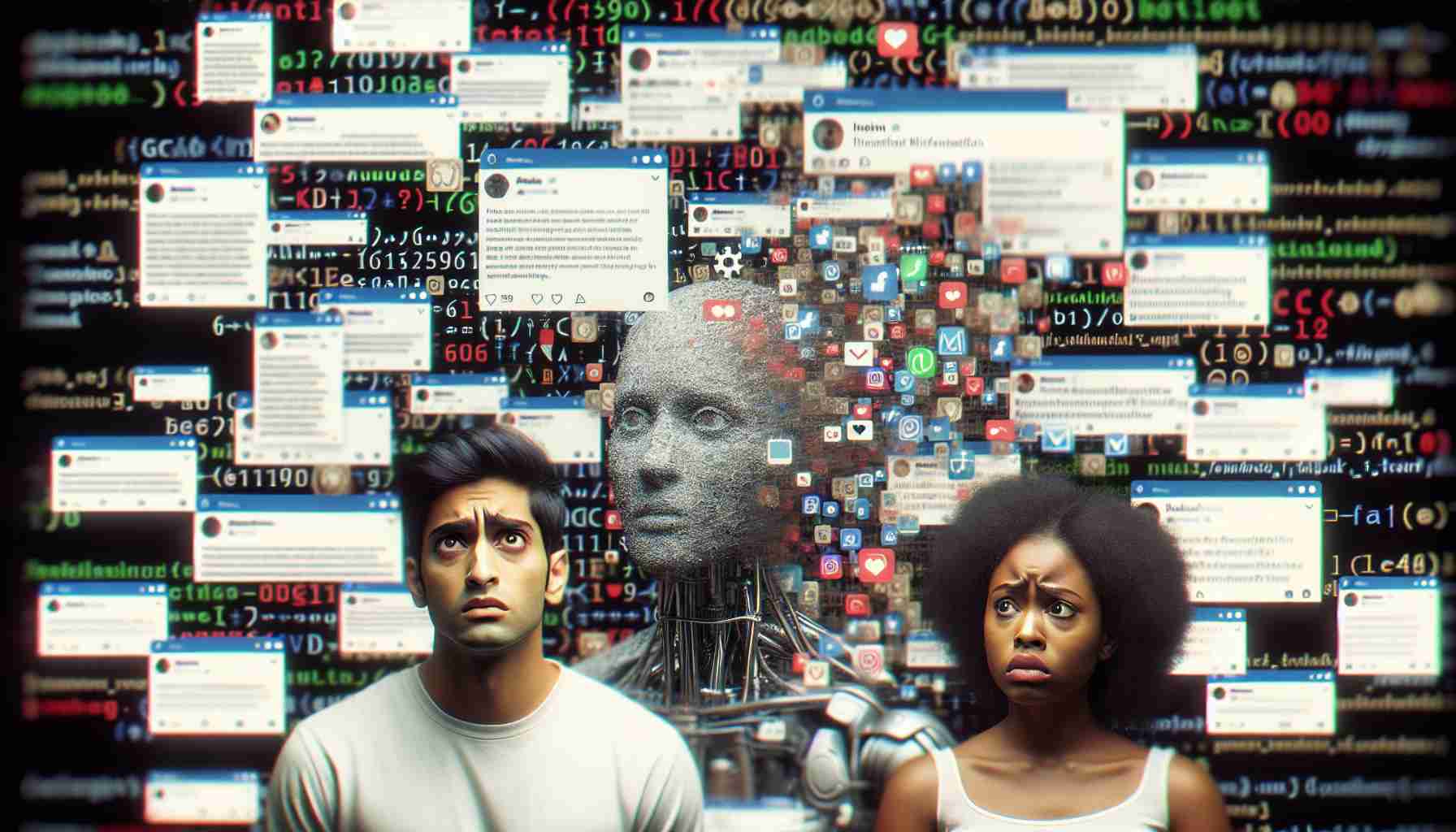Artificial Intelligence (AI) technology has undoubtedly revolutionized various industries, from healthcare to transportation. However, with great power comes great responsibility, and social media platforms are learning this lesson the hard way. The proliferation of AI-generated posts, such as the infamous “Shrimp Jesus,” is presenting a significant challenge to Facebook and other similar platforms.
These AI-generated posts are not only flooding users’ news feeds but also spreading misinformation and misleading content. With the ability to mimic human behavior, AI algorithms produce posts that could easily pass off as genuine user-generated content. This poses a grave threat to the integrity and reliability of the information shared on these platforms.
What is AI-generated content?
AI-generated content refers to posts, messages, or articles created by algorithms and artificial intelligence systems rather than a human being. These systems use deep learning techniques and language models to imitate human language patterns and generate text that resembles human-written content.
The Impact on Social Media Platforms
AI-generated content presents a significant challenge for social media platforms, forcing them to invest substantial resources in combating its spread. The sheer volume of AI-generated posts makes it difficult for platforms to identify and remove all instances of misinformation promptly. Moreover, as AI technology continues to evolve and become more sophisticated, distinguishing between genuine and AI-generated content becomes even more challenging.
With the rise of AI-generated posts, social media platforms face reputational damage and loss of user trust. The presence of misleading and false content undermines the platforms’ purpose of fostering genuine connections, sharing reliable information, and facilitating meaningful discussions.
FAQ
Q: How can AI-generated posts be harmful?
A: AI-generated posts can spread misinformation, mislead users, and damage the integrity of information shared on social media platforms.
Q: How do social media platforms combat AI-generated content?
A: Social media platforms invest significant resources in developing algorithms, employing human moderators, and using AI-powered tools to detect and remove AI-generated posts. However, the challenge persists due to the ever-evolving nature of AI technology.
Q: Are AI-generated posts distinguishable from human-generated content?
A: With advancements in AI technology, distinguishing between AI-generated and human-generated content has become increasingly difficult. AI algorithms can now closely mimic human behavior and language patterns, making it harder to identify AI-generated posts.
Conclusion
The rise of AI-generated posts, exemplified by the likes of “Shrimp Jesus,” is a growing concern for social media platforms. To maintain their mission of being reliable sources of information and fostering genuine connections, platforms must continue refining their strategies to combat AI-generated content. Collaborative efforts between AI technology developers, social media platforms, and users are crucial to tackling the challenges posed by misinformation and preserving the trust and integrity of online platforms.
Sources: [URL]
Artificial Intelligence (AI) technology has undoubtedly revolutionized various industries, from healthcare to transportation. However, with great power comes great responsibility, and social media platforms are learning this lesson the hard way. The proliferation of AI-generated posts, such as the infamous “Shrimp Jesus,” is presenting a significant challenge to Facebook and other similar platforms.
These AI-generated posts are not only flooding users’ news feeds but also spreading misinformation and misleading content. With the ability to mimic human behavior, AI algorithms produce posts that could easily pass off as genuine user-generated content. This poses a grave threat to the integrity and reliability of the information shared on these platforms.
What is AI-generated content?
AI-generated content refers to posts, messages, or articles created by algorithms and artificial intelligence systems rather than a human being. These systems use deep learning techniques and language models to imitate human language patterns and generate text that resembles human-written content.
The Impact on Social Media Platforms
AI-generated content presents a significant challenge for social media platforms, forcing them to invest substantial resources in combating its spread. The sheer volume of AI-generated posts makes it difficult for platforms to identify and remove all instances of misinformation promptly. Moreover, as AI technology continues to evolve and become more sophisticated, distinguishing between genuine and AI-generated content becomes even more challenging.
With the rise of AI-generated posts, social media platforms face reputational damage and loss of user trust. The presence of misleading and false content undermines the platforms’ purpose of fostering genuine connections, sharing reliable information, and facilitating meaningful discussions.
Market Forecasts and Industry Issues:
The AI industry is experiencing rapid growth due to advancements in technology and increasing demand for AI-powered solutions. According to market forecasts, the AI market is expected to reach $190.61 billion by 2025, with a compound annual growth rate (CAGR) of 36.62% during the forecast period (source: MarketsandMarkets). This growth is driven by various factors, including the adoption of AI in industries such as healthcare, retail, finance, and manufacturing.
However, the proliferation of AI-generated content raises concerns within the industry. The misuse of AI technology for spreading misinformation and generating fake content threatens the credibility of AI applications. It highlights the need for ethical guidelines and responsible use of AI algorithms.
Conclusion
The rise of AI-generated posts, exemplified by the likes of “Shrimp Jesus,” is a growing concern for social media platforms. To maintain their mission of being reliable sources of information and fostering genuine connections, platforms must continue refining their strategies to combat AI-generated content. Collaborative efforts between AI technology developers, social media platforms, and users are crucial to tackling the challenges posed by misinformation and preserving the trust and integrity of online platforms.
Sources: MarketsandMarkets
The source of the article is from the blog elektrischnederland.nl

